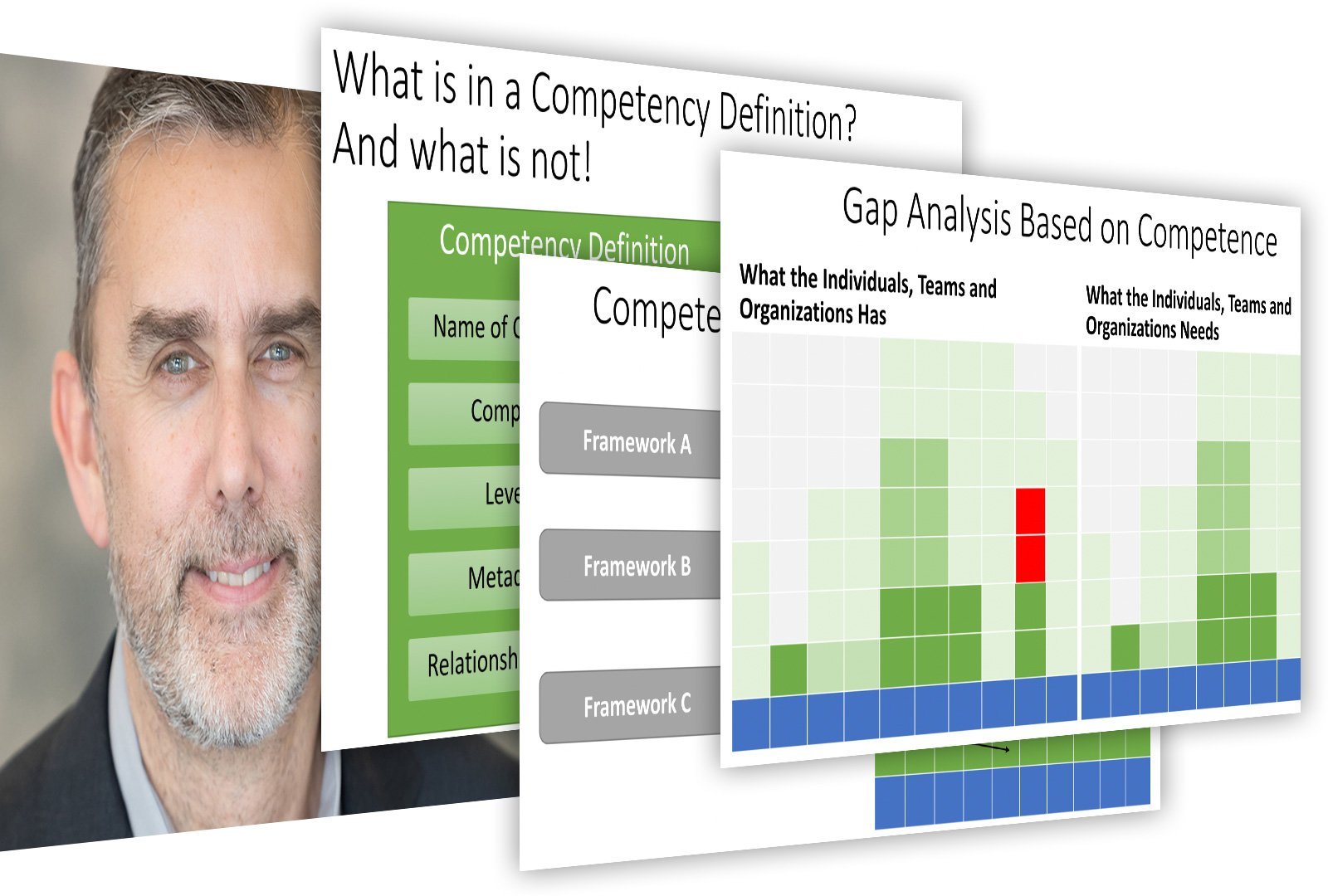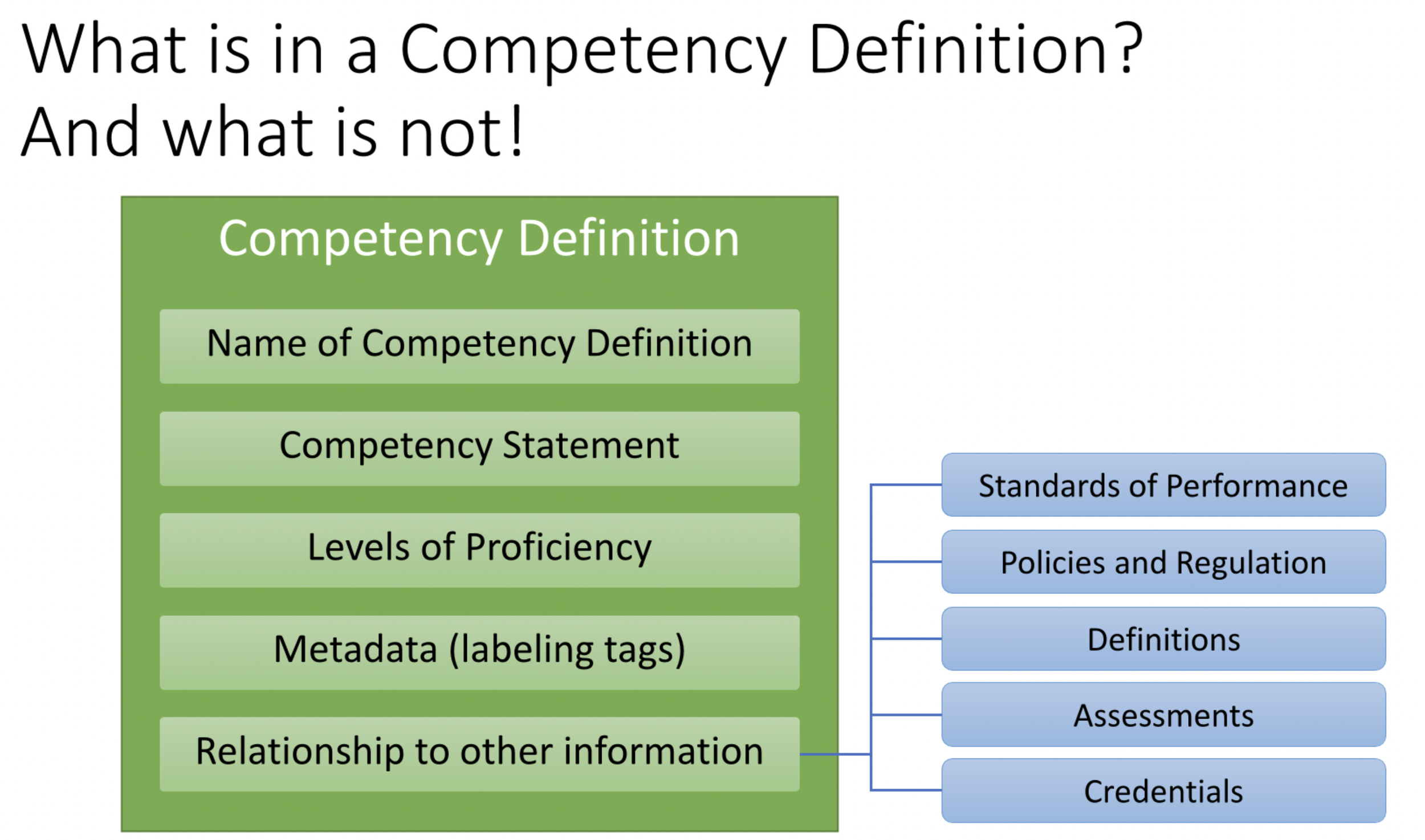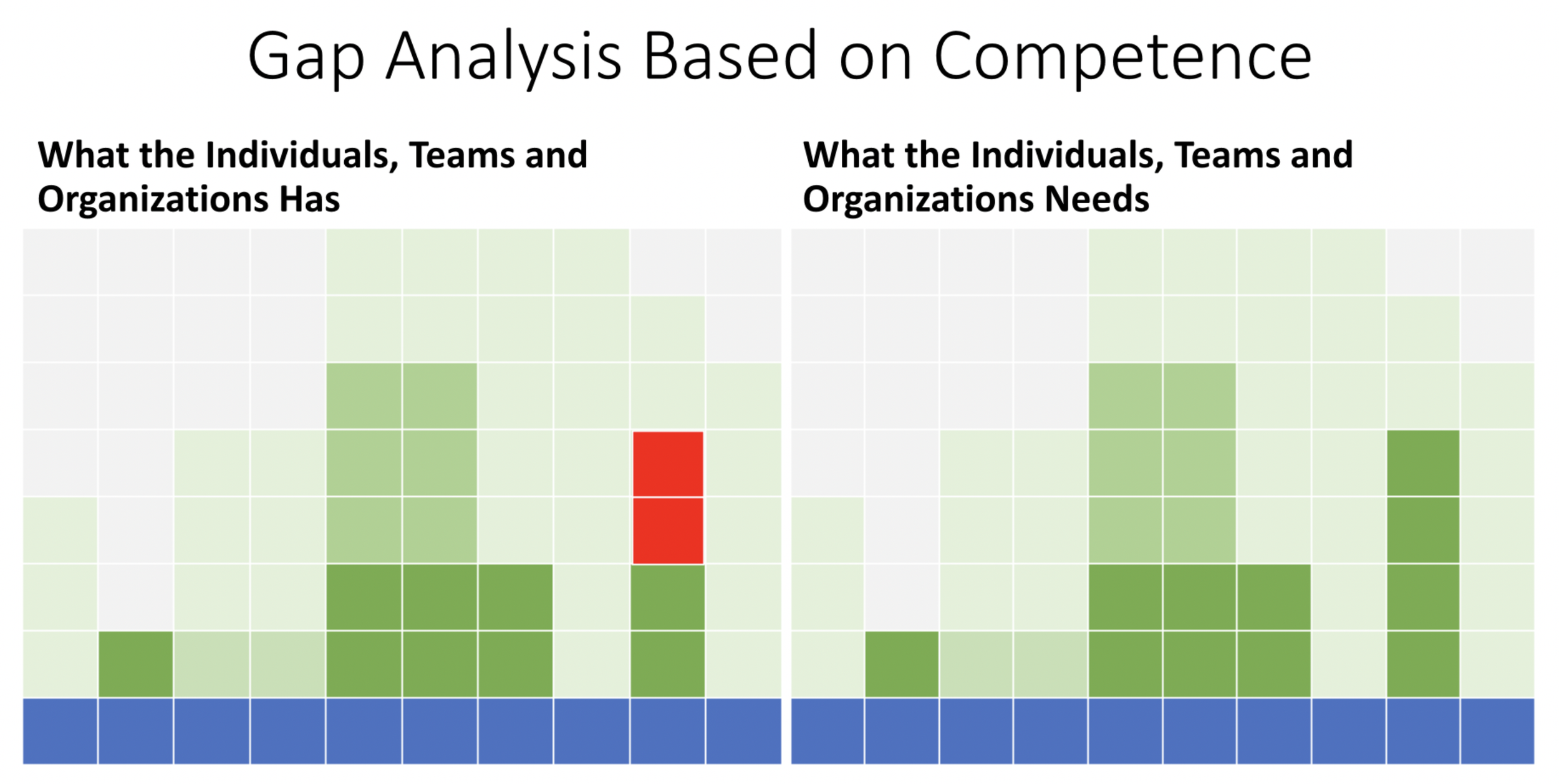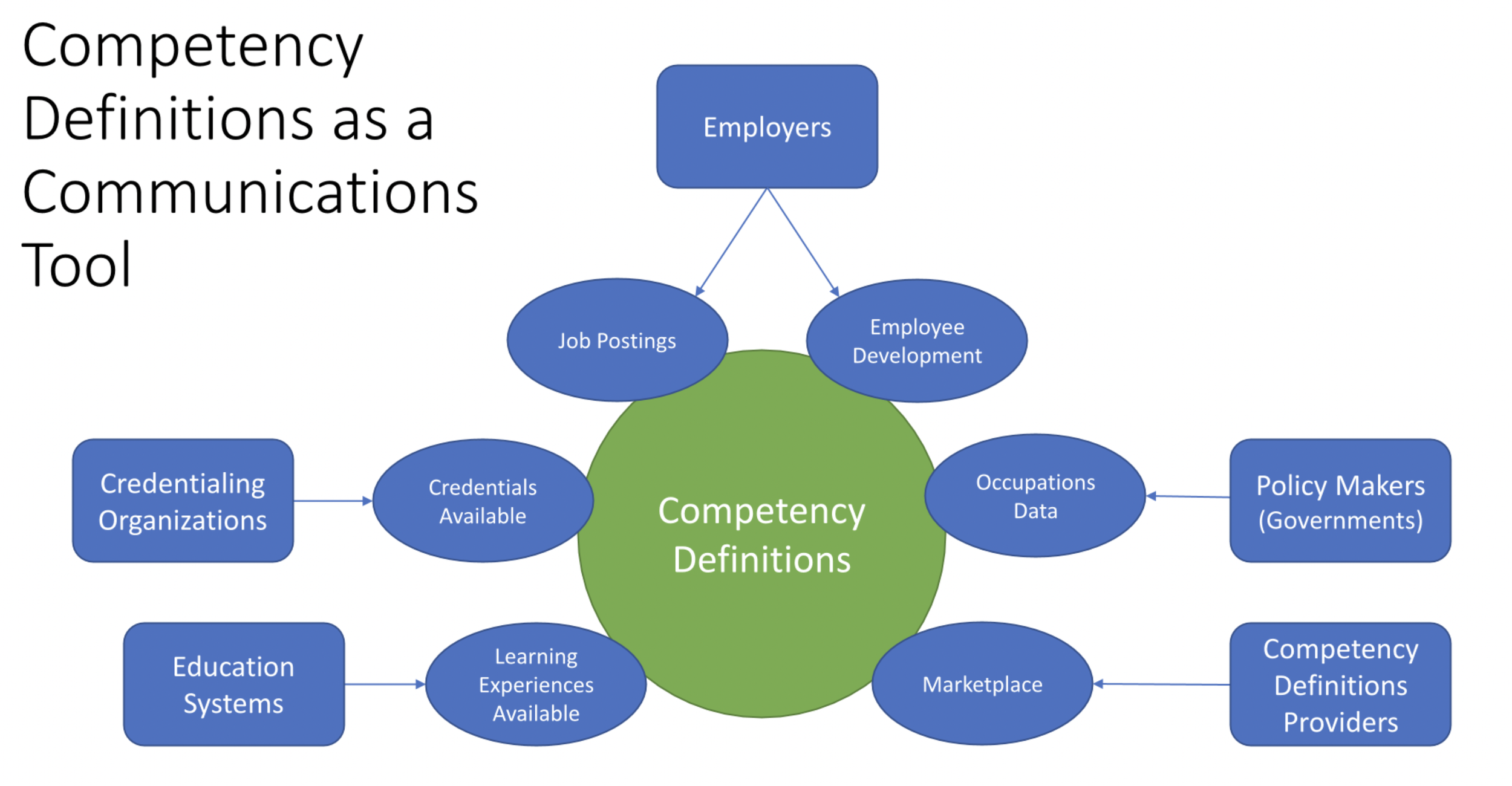Eric Shepherd on The Value of Competency Definitions and Frameworks
Steven Forth is co-founder and managing partner at Ibbaka. See his skill profile here.
Eric Shepherd has done a masterful job leading the IEEE work on designing competencies (the 1484.20.2 working group). This new standard is now up for commenting and balloting. If you are interested in this work you can follow on the associated LinkedIn Group.
As part of this, Eric has prepared an excellent visual introduction to The Value of Competency Definitions and Frameworks. Eric has generously provided this presentation under a Creative Commons License.
You can access this presentation here.
A few slides from this presentation that are especially relevant to our work at Ibbaka are shared here.
Two of the critical things about competency definitions are
Competency definitions have structure; they should not be large blocks of text
Competency definitions can connect to other things, such as Standards of Performance, Policies and Regulations, Definition, Assessment, Credentials other other things (at Ibbaka we frequently connect them to Roles and to Goals)
Competency definitions get organized into frameworks (at Ibabka we prefer the term models as this gets closer to our intent of using these data structures as a way to organize information about potential and performance). Definitions can be used across multiple models, and these extended structures are becoming an important way to organize and connect work in distributed organizations.
Competency frameworks and definitions make possible work on role coverage and skill gap analysis. This is a focus for Ibbaka’s work. We offer a service to help organizations make sure they have the people, in the roles, with the skills that they need to achieve their goals or to introduce a new capability.
Please take our survey on
How is your organization collecting and using skill data?
Competency models can also play an important role in coordinating communication between different parts of the talent ecosystem. Given the work that needs to be done in reskilling and upskilling the global workforce we need a better way to align efforts. Competency definitions can be an important communication tool connecting people looking for work and managing their careers, employers, government policy makers and education systems.
Eric goes on to discuss other key issues on the new world of connected competency definitions. We are going to need a whole ecosystem of new software platforms (Ibbaka refers to these as skill management systems), consultants, training providers and of course competency model providers.
The larger vision is to make this part of the Linked Open Data vision of WWW originator Tim Berners Lee. Competency definitions should be shared as digital objects that are fully participating parts of an open semantic web. To enable this, Eric identifies six key properties for competency definitions and frameworks going forward.
Machine readable
Editable
Transformable
Tradable
Understandable
Transparent
This is the vision that Ibbaka is working to support.
Ibbaka posts on critical skills
Critical Skills for the Future of Work - Managing Trade Offs
Critical Skills for 2022 - First Impressions of Survey Results (this post)













